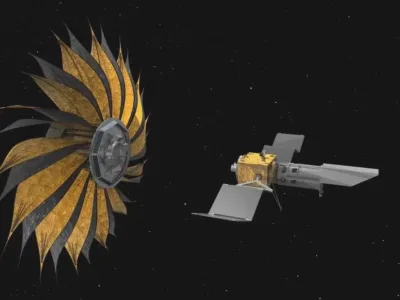
The joy of patents, part 2: Why patent?
Every time someone asks me “Why?” I think of the movie Animal House.
Why Flounder?
BURP! Why not?
I don’t know why that response strikes me the way it does. However to this day, it still makes me laugh. John Belushi was great at one line, careless comebacks.
Although your interest in patenting might be more serious than naming a fraternity pledge, you’ve got to ask yourself a question, “Do I feel lucky? Well do ya punk?”
OK that’s it for the movie flashbacks. As for patenting, there are reasons both for and against.
Because I am about to write about a law based subject I must state that I am not a lawyer or patent agent nor am I giving any legal advice. I’m simply writing about my observations and experiences as an inventor. I have also searched patents for myself and as a freelancer. I have some experiences to share there as well.
My desire to patent was to protect my idea so that I could monetize it without fear of competition. Protection to me means that the patent office has a registered time and description of my idea. In the United States, a ‘first to file’ country, the date is very important to me as it gives me a reference point in the event I have to prove I had my idea before any others. Once I file, I feel that I can begin to pursue production or selling the idea publically without fear of it being used without my permission. This temporary protection is why I use a provisional patent before submitting a utility patent.
Allow me to explain.
A provisional patent protects me for a year. As I understand it, the idea is protected until the first year anniversary of its submittal to the patent office; otherwise known as the filing date. Within that year, I will shop the idea around or begin pursuing a business arrangement to go into production. About the tenth month I’ll have a decision to make as to whether to pursue the patent or abandon it. If I don’t file the utility within one year of filing the provisional patent, I will consider the idea to no longer be mine.
I like provisional patents because they allow me to file for a low fee while not having to write a full blown, highly structured patent with detailed figures. I create a general description with hand drawn figures. Again I’m not going to stick my neck out by posting legal information so I’d suggest you investigate filing fees on the United States Patent and Trade Office USPTO website.
I don’t like provisional patents because they start the clock ticking for me to file the patent within a year. This will bring added cost and complexity to my life. Also, alerting companies to my idea might make them wait and “starve me out” when the year of protection ends. This is a common occurrence that I’ve seen when representing startup companies. Once I file the provisional patent, I must financially be ready to take the next step in filing a utility patent. This can result in costs to draft the patent in addition to filing fees. Those costs appear to be minor when compared to paying attorney fees for Office Actions that result if the patent is rejected for any reason. Further costs could be incurred in defending the patent against infringement. Therefore I might be better off selling the patent within that first year and moving on to save further costs and efforts. This decision is a constant struggle that I face.
Some ideas I wouldn’t patent. I’ve seen them referred to as trade secrets such as the formula for Coca Cola or the recipe for Kentucky Fried Chicken. I would view these ideas as best kept private. I don’t see the value in making them public.
Regardless of how accessible a patent is to the public, I always view patents in a manner similar to anything I post on the internet. Once it’s out there, it is public domain that is available to all. This weighs heavy on my decision as what to file and when to file it.
In the law-driven country in which I live I often hear one more popular movie line ringing in my head, “Can and will be used against you in a court of law.”
Yikes!
That’s something to think about when asking yourself, “Why Patent?” or “Why post it on the internet?”
Scott Deuty is a power electronics consultant and technical author having spent much of his career writing technical documents and application notes.
This article first appeared on EE Times sister site Planet Analog
References
Related links and articles:
The joy of patents, part 1: The fun stuff
How to increase your engineering value in just 20 minutes a day
 If you enjoyed this article, you will like the following ones: don't miss them by subscribing to :
eeNews on Google News
If you enjoyed this article, you will like the following ones: don't miss them by subscribing to :
eeNews on Google News




